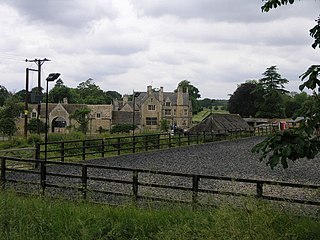
John FitzPatrick, 1st Earl of Upper Ossory was an Anglo-Irish nobleman who lived in County Cork, Ireland.
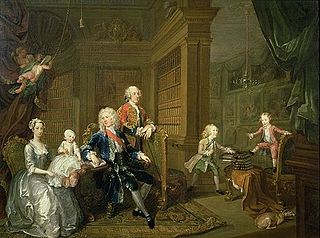
George Cholmondeley, 3rd Earl of Cholmondeley, styled as Viscount Malpas from 1725 to 1733, was a British Whig politician and nobleman who sat in the House of Commons from 1724 to 1733.
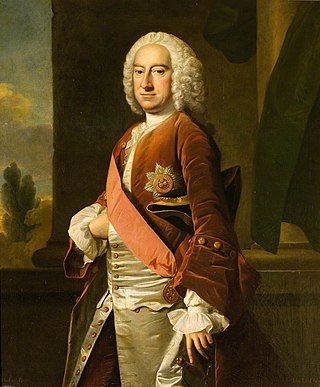
John Campbell, 3rd Earl of Breadalbane and Holland KB, styled Lord Glenorchy from 1716 until 1752, was a Scottish peer, diplomat and politician who sat in the House of Commons from 1727 to 1746.

Lieutenant-General William Keppel was a British Army officer and Member of Parliament.

John Hobart, 1st Earl of Buckinghamshire, was a British politician who sat in the House of Commons from 1715 to 1728, when he was raised to the peerage as Baron Hobart.
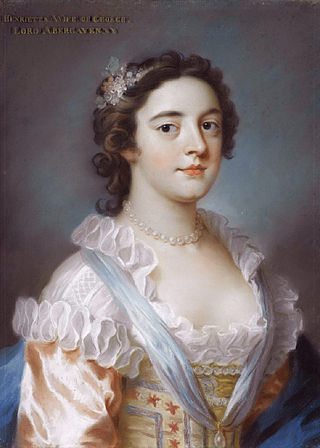
George Nevill, 1st Earl of Abergavenny, known as Lord Bergavenny from 1744 to 1784, was an English peer. He married into a branch of the Pelham family seated at Stanmer and briefly held office as Lord Lieutenant of Sussex. Created an earl in 1784, he died the following year.
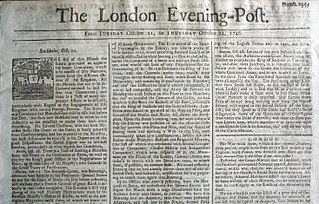
The London Evening Post was a pro-Jacobite Tory English language daily newspaper published in London, then the capital city of the Kingdom of Great Britain, from 1727 until 1797.
Francis Burton, from Buncraggy, County Clare, Ireland, was an Anglo-Irish politician and landowner. He was a Member of Parliament for Coleraine from 1721 until 1727 and sat subsequently in the Irish House of Commons for County Clare from 1727 until his death in 1744.
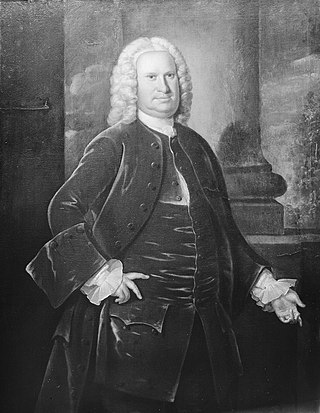
James Tilghman (1716–1793) was a prominent lawyer and public servant in colonial Maryland and Pennsylvania.

Henry Brydges, 2nd Duke of Chandos, KB, known from 1727 to 1744 by the courtesy title Marquess of Carnarvon, was the second son of the 1st Duke of Chandos and his first wife Mary Lake. He was the Member of Parliament for Hereford from 1727 to 1734, for Steyning between 1734 and 1741, and Bishop's Castle between 1741 and 1744.
Richard Abell was a British lawyer and Whig politician who sat in the House of Commons from 1720 to 1727.
John Heathcote FRS was a British Member of Parliament.
Walter Hodges D.D. was an English academic administrator at the University of Oxford.
General Sir Thomas Spencer Wilson, 6th Baronet was an officer of the British Army and politician who sat in the House of Commons from 1774 to 1780.
Andrew Lumsden, M.A. (1654–1733) was a Scottish clergyman who served as the Bishop of Edinburgh (1727–1733) and Primus of the Scottish Episcopal Church (1727–1731).
Arthur Millar was a Scottish Anglican bishop in the first third of the 18th century.
The Ven. Joseph Sager (1694–1757) was Archdeacon of Sarum from 1727 to 1732.
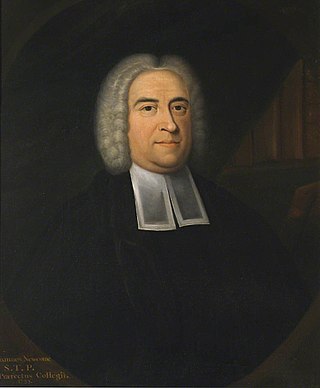
John Newcome was an eighteenth-century academic and priest, who served as Master of St John's College, Cambridge.
Kenrick Prescot, D.D. was a priest and academic in the second half of the 18th century.
This page is based on this
Wikipedia article Text is available under the
CC BY-SA 4.0 license; additional terms may apply.
Images, videos and audio are available under their respective licenses.









